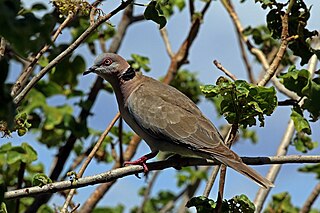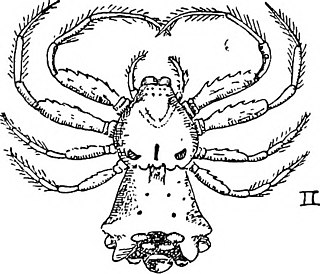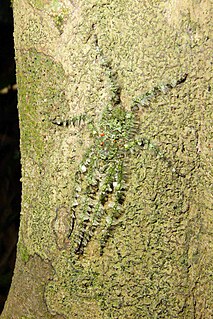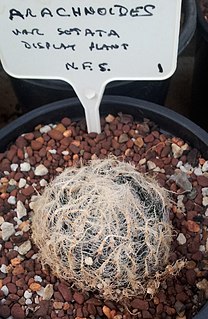
The Thomisidae are a family of spiders, including about 175 genera and over 2,100 species. The common name crab spider is often linked to species in this family, but is also applied loosely to many other families of spiders. Many members of this family are also known as flower spiders or flower crab spiders.

The mourning collared dove or African mourning dove is a dove which is a widespread resident breeding bird in Africa south of the Sahara. Despite its name, it is not related to the North American mourning dove. This species is common or abundant near water. They often mingle peacefully with other doves.

Salix fragilis, with the common names crack willow and brittle willow, is a species of willow native to Europe and Western Asia. It is native to riparian habitats, usually found growing beside rivers and streams, and in marshes and water meadow channels.
Henry Ogg Forbes LLD was a Scottish explorer, ornithologist, and botanist. He also described a new species of spider, Thomisus decipiens.
Depreissia is a genus of jumping spiders that was first described by R. de Lessert in 1942. As of June 2019 it contains only two species, found only in the Congo and on Borneo: D. decipiens and D. myrmex.

Synemosyna is a genus of ant mimicking jumping spiders that was first described by Nicholas Marcellus Hentz in 1846.

Serruria, or spiderhead is a genus of flowering plants in the family Proteaceae, endemic to South Africa.
Halophila decipiens, commonly known as Caribbean seagrass or paddle grass, is a seagrass in the family Hydrocharitaceae. It grows underwater on sandy or muddy sea floors in shallow parts of tropical seas.

Phrynarachne decipiens, the bird-dropping spider, is a species of tropical crab spider from Malaysia, Sumatra and Java. It mimics a bird dropping in its appearance and the way it behaves.

Cyphononyx is a genus of spider hunting wasps in the family Pompilidae.

Pandercetes is a genus of huntsman spiders that was first described by Ludwig Carl Christian Koch in his 1875 treatise on Australian spiders. They are mainly distributed in tropical Asia and Australia, and are known for their cryptic coloration that matches local moss and lichen. Their legs have lateral hairs, giving them a feathery appearance, further masking their outline against tree trunks. Their head is somewhat elevated and the carapace has the thoracic region low and flat.

Haworthia arachnoidea, locally known as "papierrosie" (paper-rose) or "spinnekopnes" (spider-nest), is the type species of the genus Haworthia, in the family Asphodelaceae, in the Western Cape Province of South Africa.

Persicaria decipiens, commonly known as slender knotweed, is a species of flowering plant native to Australia and Asia.

Phrynarachne is a genus of crab spiders first described by Tamerlan Thorell in 1869.
Pandercetes decipiens, is a species of spider of the genus Pandercetes. It is native to India and Sri Lanka.

Boliscus is a genus of Asian crab spiders first described by Tamerlan Thorell in 1891. As of February 2019 it contains only three species.
Decipiphantes is a monotypic genus of dwarf spiders containing the species Decipiphantes decipiens. It was first described by Michael I. Saaristo & A. V. Tanasevitch in 1996, and has only been found in Belarus, Kazakhstan, Mongolia, and Russia.
Corynethrix is a monotypic genus of South Pacific crab spiders containing the single species, Corynethrix obscura. It was first described by Ludwig Carl Christian Koch in 1876 based on a female specimen. They have been found in New South Wales and Queensland. A male has not yet been identified, and there is very little known about the biology and behavior of this species and its relatives.










